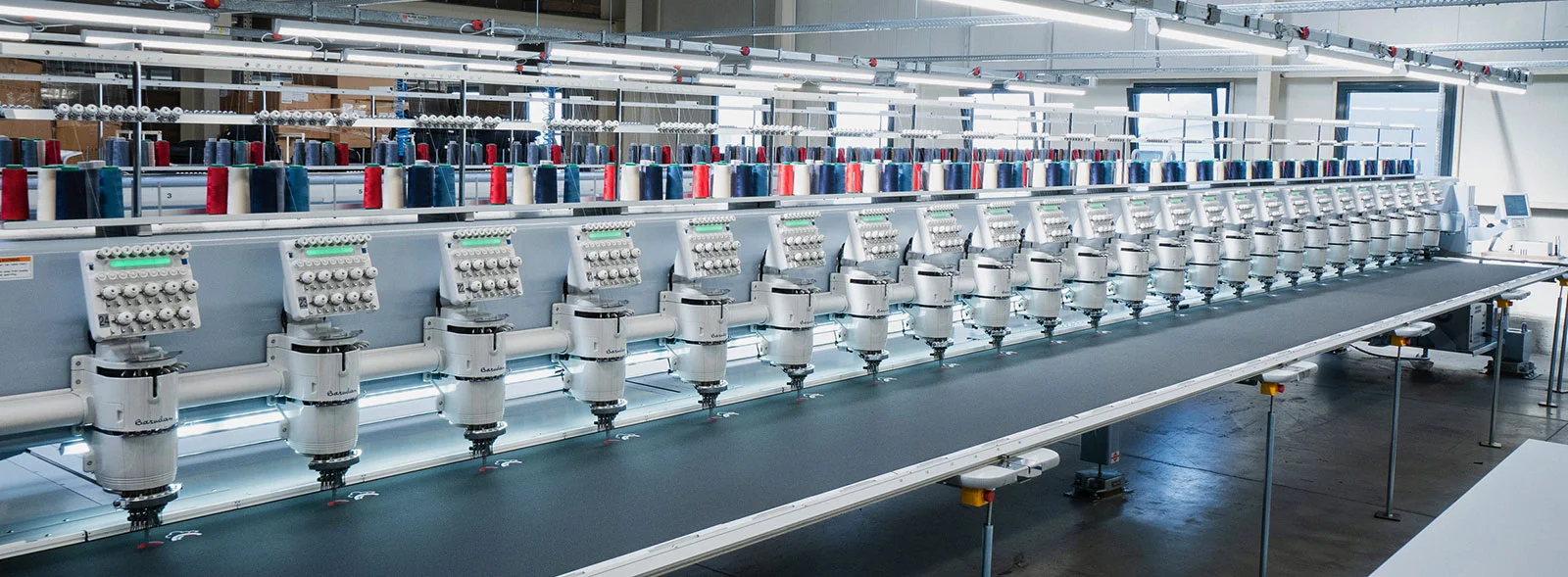Our Thoughtful Living Journey
Aster Textile was established in Istanbul with the vision of becoming a global manufacturing brand.
Driven by innovation and a dedication to quality, it pursued its growth to become a leading force in the industry.
By moving its facility to Avcılar, Aster expanded its production capacity and customer portfolio.
Aster launched its transformation in cooperation with the most successful global consultancy in the sector.
Aster Textile entered the European market with the objective of achieving significant successes, a long-planned strategic move into a major market.
Aster established an in-house design department and started to present its collections to clients.
Kırklareli-Babaeski facility was set up to expand Aster’s production capacity.
Aster Textile invested in the Tokat-Erbaa production facility.
Aster invested in its Esenyurt headquarters office building, a structure of significant architectural importance.
Aster Textile invested in its Serbia – Niš facility.
Aster received ISO 27001 Information Security Management System and ISO 9001 Quality Management System certifications.
Aster Textile established its in-house embroidery facility, equipped with the latest in advanced technology.
Aster became one of the signatories
of the United Nations Global
Compact. Aster Textile became one
of the first textile companies to sign
the Women’s Empowerment Principles
(WEPs).
The printing facility was established
with an advanced technology
infrastructure.
Aster entered the technical and
activewear product group by
acquiring Yalçın Textile Dyeing and
Finishing Company (now: Artesa
Fabrics).
The Second Life Movement project was launched.
Artesa completed its corporate identity transformation.
Aster Textile became one of the first companies to join the Target Gender Equality program.
Artesa Fabrics increased its knitting capacity with a total of 29 machines.
Our entire electricity consumption started to be supplied from 100% renewable sources with International Green Energy Certification (I-REC).
The newly acquired Belleza Textile joined Artesa, increasing the company’s knitting capacity to a total of 37 machines.
The second phase of the Tokat-Erbaa plant was opened and capacity was increased by integrating it with printing facilities.
Three new production lines were added to the Headquarters.
ISO 14001 Environmental Management System Certificate was obtained.
Artesa Fabrics’ Knitting division was relocated to a new building with an area of 12,361 m2.
Fides Textile (now Aster Nevşehir) was acquired.
Investments in the embroidery sections at the Tokat-Erbaa and Babaeski plants were completed in line with the company’s internal capacity building and vertical integration capabilities.
With the machinery investments completed in the knitting section, Artesa Fabrics became a facility with 71 knitting machines and many technologies such as artificial intelligence and learning error detection system.
Artesa Dyehouse increased its monthly fabric production to over 550 tons. Raschel knitting capacity increased.
Through new plant and machinery investments in the dyeing sections, the necessary infrastructure for dyeing fabrics with natural fibres was completed.
Artesa Fabrics was transformed into a facility encompassing a total indoor area of 37,960 m2 with a fully automated system for both chemicals and dyestuffs, integrating powerful heat and water recovery solutions at different levels.
For renewable energy, the rooftop solar energy panel investments of Tokat- Erbaa and Artesa Fabrics factories were completed, and a total installed capacity of 4 MW was commissioned.
The Design, Innovation and Business Development Centre in London moved into its own building. Digital and Rotary Fabric Printing, Continuous Bleaching and Mercerisation processes were added to Artesa Fabrics with new investments.
With the investments made in Artesa Fabric, Digital and Rotary Printing and Jacquard Knitting processes have been added.
In the light of the objective of strengthening corporate governance mechanisms, the SAP Transformation Project was launched.
An automation program that enables real-time monitoring of energy, water, and chemical consumption in Artesa Fabric's dyehouse has been implemented.
The Cord Tipping process has been added to Setra Trim's operations.
Continuous Bleaching and Mercerisation processes have been added to Artesa Fabric. Additionally, construction has begun on our own treatment plant to recover 85% of the existing wastewater.
A second facility investment in Tokat – Erbaa has been completed and commissioned.
The ISO 45001 Occupational Health and Safety Management System Certificate has been obtained.
As the Aster Companies Group, our commitments to Near-term and Net Zero goals have been made, and efforts toward science-based targets have been accelerated.
